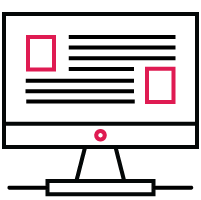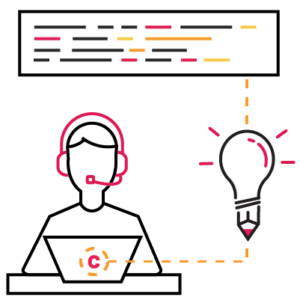5 Ways to Level Up Your Technical Product Management Skills
Congratulations, you’ve landed a product management role on a technical team building software, apps, or hardware. But now comes the tough part: learning enough about the technology to collaborate effectively with engineers.
Acquiring fluency in “Techlish” can seem daunting, especially if you don’t have a technical background. However, with the right strategies, resources, and mindset shifts, you can bridge the knowledge gap.
Let’s explore five concrete ways to bootstrap your technical PM expertise:
Leverage online training resources
Numerous websites like Coursera, edX, Udemy, and Udacity offer beginner-friendly training on software engineering concepts. Structured courses and tutorials teach you key terminology, fundamentals, and core principles across domains like:
- Programming languages like Python, JavaScript, Java
- Web development skills (HTML, CSS, React, Angular)
- Cloud infrastructure (AWS, Azure, Google Cloud)
- Data science and analytics
- Mobile app development
Don’t try digesting everything at once or it will be overwhelming. Focus your learning selectively on the specific languages, frameworks, databases, and infrastructure your product relies on. Look for courses that provide hands-on labs and projects to accelerate practical skills.
Dive deep into documentation
Your own product’s documentation is a technical goldmine. Developers have to create specs, architecture diagrams, admin guides, API references, and other collateral.
Treat this documentation like required reading:
- Note acronyms and definitions you’re unfamiliar with and compile a glossary
- Study architecture diagrams to understand high-level components and data flows
- Review API documentation to grasp how services communicate
- Read release notes to learn about new technical features and fixes
Documentation reveals how all the technological pieces fit together. Refer back to it regularly to fill knowledge gaps. Don’t just skim—take detailed notes.
Find a technical mentor
Learning complex technology in a silo can be slow and confusing. A faster approach is finding an internal mentor.
Look for an experienced architect or lead engineer who:
- Enjoys teaching and explaining technical concepts
- Has the patience for lots of questions
- Believes PMs should understand the technology stack
Schedule regular “Tech 101” meetings to explain concepts, review architectures, dig into roadmaps, and translate acronyms. This human shortcut helps you ramp up faster via 1:1 knowledge sharing. And, as a side benefit, your mentor can also give you insider insight into how the team is operating, where the product is in the best shape, and where it needs the most attention.
Understand how engineers make decisions
Beyond technical jargon, you need insight into how engineers evaluate options and make build vs. buy vs. wait choices:
- What factors do they consider when selecting frameworks and tools?
- How do they quantify and prioritize technical debt?
- What metrics and benchmarks guide performance optimization?
Understanding their decision process, not just the syntax they use, enables you to have intelligent discussions. Learn what types of technical arguments resonate with them. And, perhaps most importantly for a PM, how to translate their domain knowledge into “Businessese” so you can effectively advocate for your product team when talking to leadership.
Shift your mindset
Finally, evolving your mental models and attitudes is crucial for effective collaboration:
- Be proactively curious—ask “why” and “how” frequently
- Remember you’re on the same team, working toward shared goals
- Value engineers’ specialized expertise that complements your skills
- Check ego and don’t pretend you know more than you do
- Have patience and accept you won’t become an expert overnight
Adopting an authentic, team-first mindset makes technical workers far more likely to invest time in your growth. Let humility and curiosity shine.
Becoming “technical” takes time and focus
There are no shortcuts to gaining true technology fluency. Be patient with yourself. The payoff of increased credibility and tighter collaboration with engineers is worth the effort.
Use these tips to supplement hands-on learning:
- Take online courses focused on your tech stack
- Treat documentation like a textbook
- Find internal mentors happy to explain concepts
- Observe engineers making decisions
- Shift your mindset from ego to curiosity
Level up your technical product management skills, and you’ll be equipped to make products customers love.






